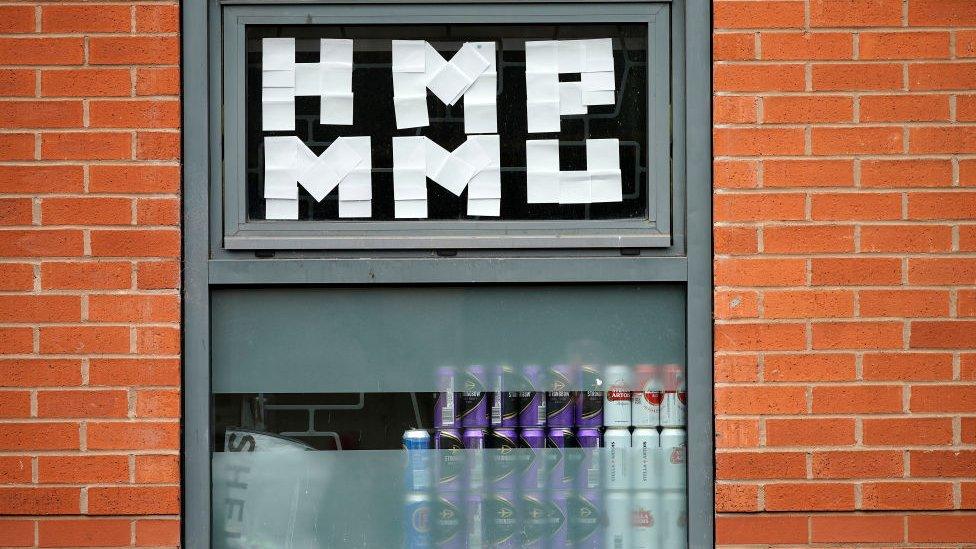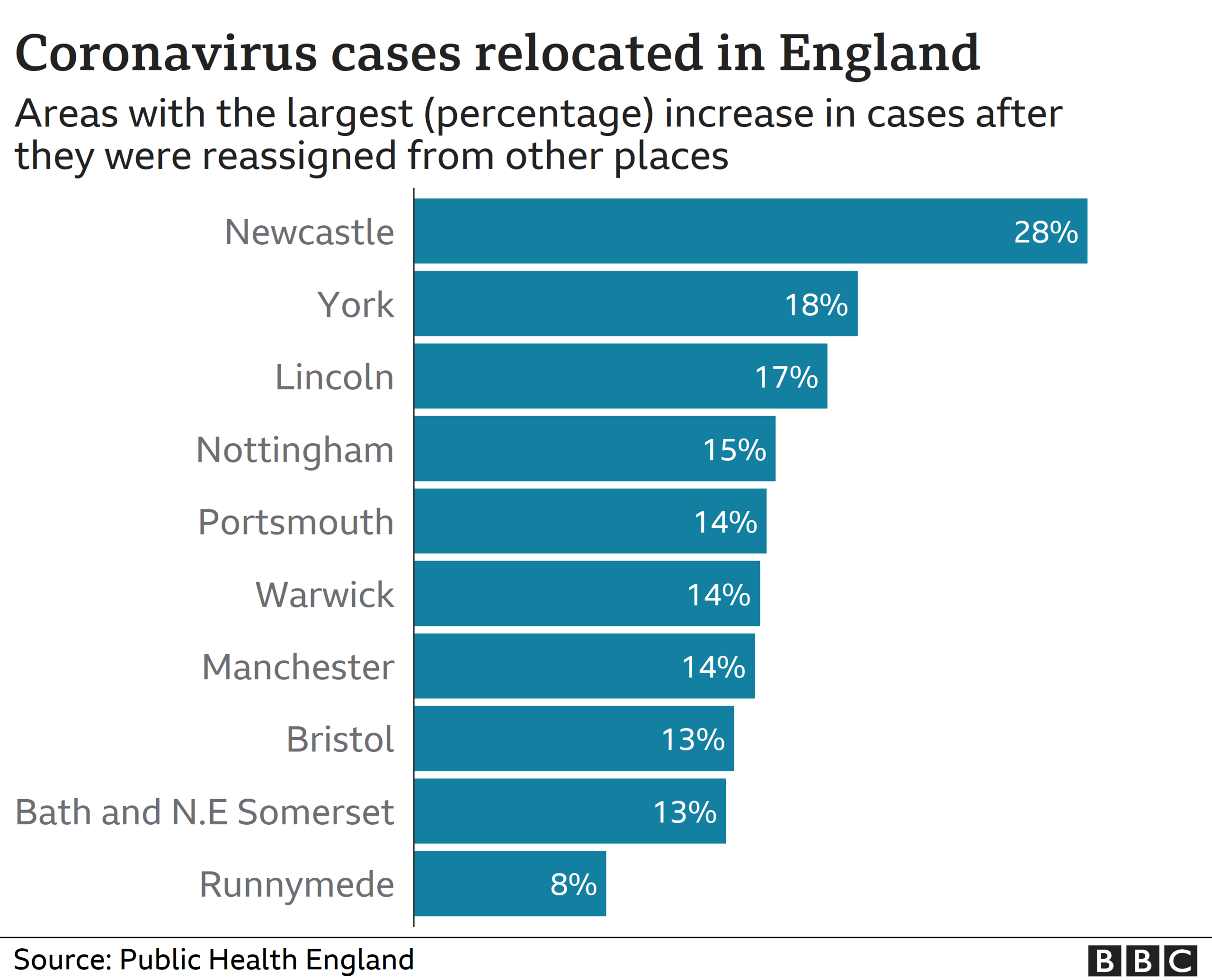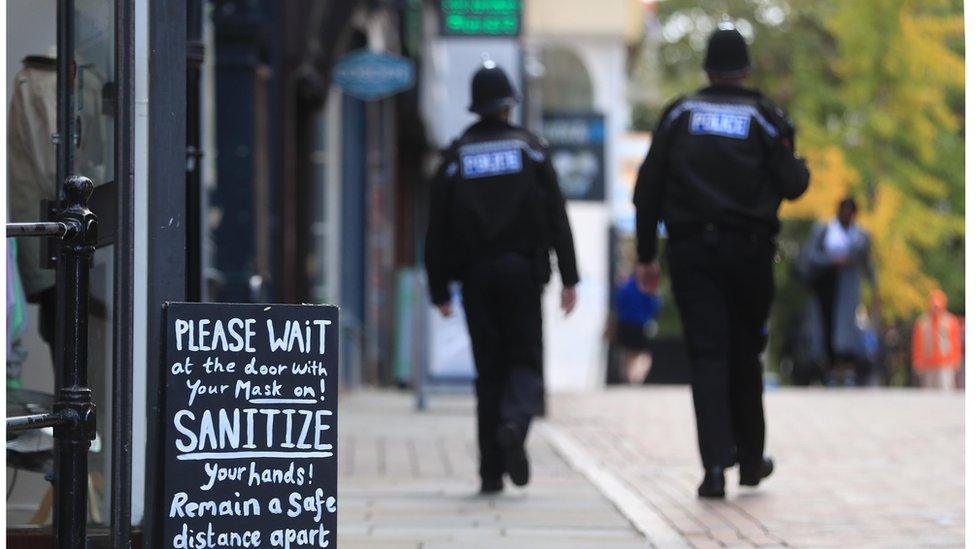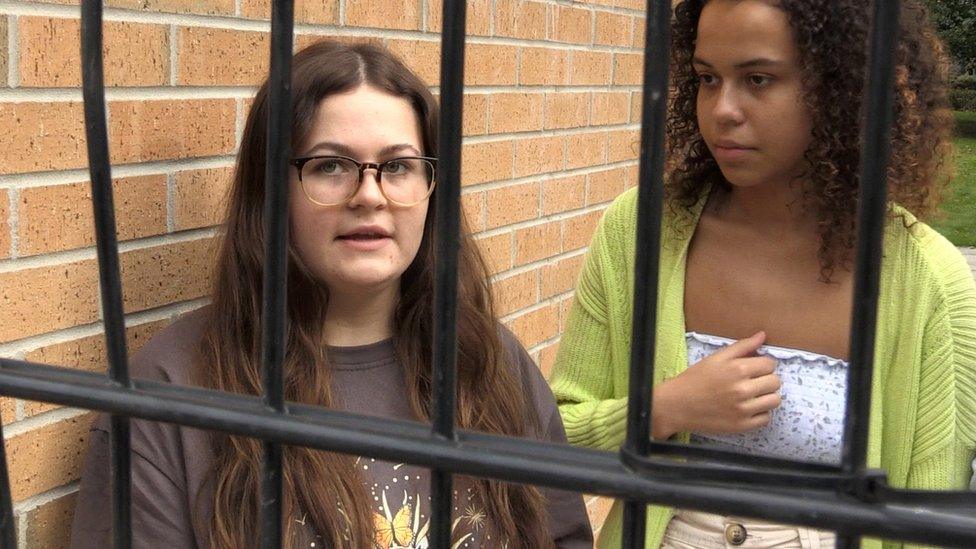Covid: Thousands of cases relocated in England in data change
- Published

Students across the country had to self isolate in halls of residence following coronavirus outbreaks
Parts of England have recorded thousands of additional coronavirus cases after the government changed its recording methods.
Cases were assigned to the address in a patient's NHS records, but this did not account for those who have recently moved, such as students.
Newcastle saw cases rise by more than a quarter, followed by York and Lincoln.
Officials say the change had not affected decisions about local or national lockdown restrictions.
Dr Yvonne Doyle, medical director at Public Health England (PHE), said the change better reflected where positive cases were happening in recent weeks.
She added it particularly impacted cases among university students "who may not have yet registered with a GP at their term-time address".
Many universities around the UK have reported coronavirus cases, which caused thousands of students to self-isolate as the new term began.
From 1 September to 15 November - of England's 315 local authorities - nearly one in five had additional cases assigned to them which were previously recorded elsewhere.

Newcastle Upon Tyne - which had 9,766 cases as of 15 November under the old method of recording - saw an increase of 2,694 cases to 12,460 - a 28% rise.
More than 400 of these were recorded on 3 and 4 October.
Meanwhile Richmondshire, in North Yorkshire, had the highest proportion of cases re-allocated away from the area.
Of the area's 677 cases between 1 September and 15 November, 124 were placed elsewhere.
PHE said the changes had not affected decisions on whether to impose stricter lockdowns on areas, as these took into account "a wider range of evidence".

THE R NUMBER: What it means and why it matters
SUPPORT BUBBLES: What are they and who can be in yours?
TEST AND TRACE: How does it work?
TESTING: What tests are available?

- Published17 November 2020

- Published28 September 2020

- Published2 December 2020
